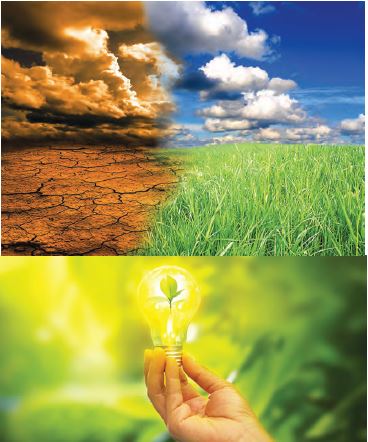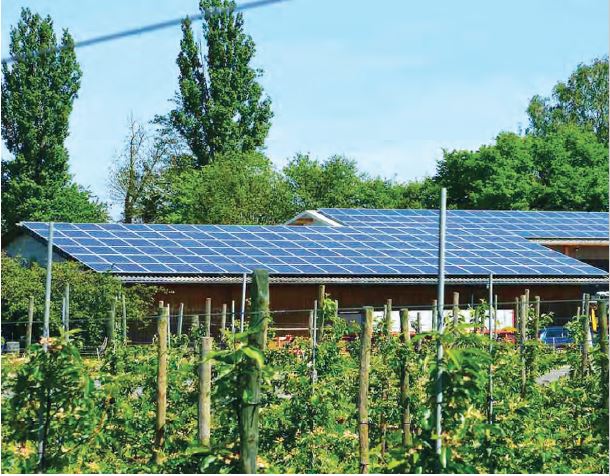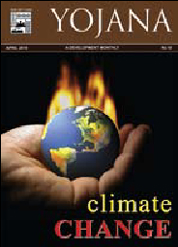 |
|
 |
COVER
STORY |
 |
|
| |
| |

|
|
Tapping Sustainable Energy Alternatives
|
|
|
The second lead article, which is also focus article, is written by Shri N Bhadran Nair. Citing a report of the World Health Organisation, the author has advocated for tapping sustainable energy alternatives
|

|

|

|

|
|
Financing Renewables in India
|
|
|
The third article is written by Shri P C Maithani, Adviser, Ministry of New and Renewable Energy. He has focussed on renewable energy resources
|

|

|

|
|
Steps to Achieve India’s Solar Potential
|
|
|
The special article is written by Sumant Sinha, Chairman and Managing Director of ReNew Power. He opines that India must also honour its global commitments on curbing greenhouse gas emissions
|

|

|
|
 |
Lead Article
Textiles the word brings up images of beautiful drapes cotton, silk, chiffon, lace. Whether it is the material draped on the figurine of the lady from Mohenjadaro, the stylish drapes of Cleopatra, the ball dance gowns of the Victorian Era or the lovely dresses worn by our own queens and princesse...
read more... |
|
 |
|
|
|
|
|
|
|
About the Issue
|
|

With regard to climate change, India has some real tough tight-rope walk before it. With temperatures poised to rise by 2.5 to 5 degrees Celsius over the century, monsoon patterns threatening to go haywire and sea levels likely to rise, as it is there will be problems of food security, water scarcity, livelihood, and health to reckon with. To be balanced with this are the imperatives of sustaining a high economic growth as a prerequisite to poverty alleviation, and
the need to raise per capita energy consumption to provide a minimally acceptable level of well being.
India has rightly been looking both inward and outward in its efforts to balance its varied and often seemingly contradictory concerns. This is reflected in our comprehensive domestic agenda for mitigating climate change, adapting to it and aiming to cut the emission intensity of GDP by 20-25 % of the 2005 level by 2020; This is also reflected in our proactive climate negotiations in international fora where we have persistently been upholding the principle of common but differentiated responsibility, fighting for the rights of the developing countries
to economic growth without the impediments of immediate formal caps on emissions, and insisting that developed countries respect their obligations to reduce emission and help developing countries to get on to the path of sustainable development.
Climate change is not just about the environment. As Copenhagen has proved, for some it means clinging on to their high consumption lifestyles while finding out ways to sweep the products of such lifestyles under the carpet. For others it means safeguarding their rights to grow, and for yet others it is a question of their very existence. Certainly not the best backdrop for world consensus. India and the other BASIC group of countries have however, done the best they could have under the circumstances. Emerging as a powerful force in the climate change negotiations, the coordinated efforts of this quartet has ensured that the negotiations under
UNFCCC will continue on the two tracks laid out at Bali - one leading to long-term cooperative action and the other leading to the second commitment period of Annex I Parties under the Kyoto Protocol. The 30 billion dollar "Copenhagen Green Climate Fund" for the period 2010-12 would also be a useful support for adaptation and mitigation efforts in the lesser developed and more vulnerable countries.
As of now, our feet seem to be steady on the tight rope, but there is still a long distance to be traversed. Both on the outward and inward fronts, there is still a lot that needs to be done. The articles inside discuss what the phenomenon of climate change means to India, what we have done so far to tackle the various issues that this phenomenon is likely to open up, and which are the areas where we need to do more.
|
|
|
|
|
|
|
|
|
|
|
 |

|
|
 |
|
|
 |
|
Regular
Column |
 J&K Window : J&K Window : |
|
|
 Do you know? : What is Forensic Auditing Do you know? : What is Forensic Auditing |
|
Forensic auditing refers to the auditing with the main aim to employ accounting techniques and methods to gather evidence to investigate the crimes on financial front such as theft, fraud etc.
|
|
|
 |
|
 |
 |